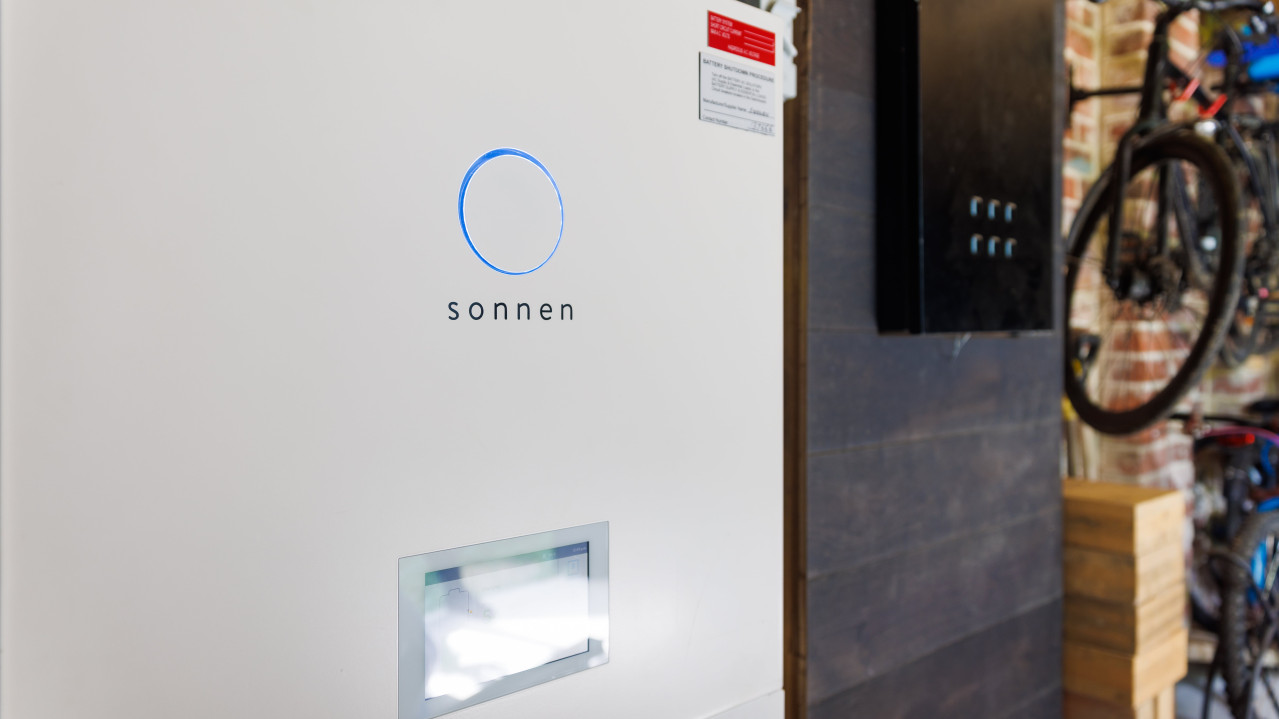
Types of solar battery storage
Home solar batteries are gaining popularity with solar installations, and it's likely that in the next five to 10 years, most Australian homes with solar panels will incorporate a battery system that enables the storage of excess energy from solar. Here we look at the different types of battery storage.
Delivering a significant advantage over rooftop solar alone by offering greater independence from the electricity grid, a home solar battery system enables you to store the surplus power generated by your panels during the day and use it at night or during periods of low sunlight or high energy demand. Home solar batteries are gaining popularity with solar installations, and it's likely that in the next five to 10 years, most Australian homes with solar panels will incorporate a battery system that enables the storage of excess energy from solar.
How home solar batteries work
By storing the excess solar energy, home solar batteries empower your household to tap into that stored power whenever you need it, so if your rooftop solar panels and battery have the capacity, you can cover a substantial amount of your home energy needs with solar power. This means powering your home with clean energy around the clock, providing a reliable and uninterrupted energy supply, reducing reliance on the grid and helping you move towards energy independence.
Solar batteries are now more affordable and accessible since they first hit the market, and they’re also more reliable and efficient, accelerating the adoption of residential energy storage systems, which in turn, helps to advance further improvements in technology. This means that not only is battery and storage technology rapidly developing and improving, but you have many options when it comes to installing solar battery storage at home, including different battery types.
So, what are the different types of solar batteries, how do they work, and what should you consider before buying a battery?
Lead Acid Solar Battery Storage
Traditional lead-acid battery technology, commonly employed in auto applications, is also utilised for solar energy storage. These are typically cheaper than other types of solar batteries and are highly dependable, but there are many downsides to lead acid solar batteries, such as their large size and bulky appearance, the high levels of ventilation and maintenance they require, and their shorter life spans compared with other options. Additionally, they have a slow charge cycle which makes them less efficient and warranties tend to be shorter, further increasing the appeal of other battery types.
Flow Batteries
Flow batteries (technically ‘redox flow batteries’) contain a water-based zinc-bromide solution that flows between two tanks. During the charging process, the battery extracts the zinc from the liquid and stores it separately, and when discharging, it then reintroduces the zinc back into the liquid. While not a new technology, it's relatively new on the battery storage market and quickly gaining popularity – however, the main drawback is that flow batteries have a low capacity and require a larger system compared with other batteries. Because of this, they’re not ideal for residential use.
Nickel-Based Batteries
Despite their durability and ability to resist extreme temperatures, nickel-based batteries are not well-suited for home energy storage. While these batteries can last many years, the electrolyte inside needs replacing every 7-10 years, which is quite expensive. What’s more, the ongoing maintenance required, including refilling with distilled water, is something that homeowners just don’t want to deal with. Coupled with slow charging and discharging rates that limit daytime charging and night and peak-time discharging capabilities, it's easy to see why homeowners opt for alternatives.
Lithium-Ion Solar Battery Storage
The most popular type of solar home battery in residential solar applications, lithium ion, requires limited maintenance and delivers high energy density and longer life spans. But there are several types of lithium-ion chemistry, like lithium nickel-manganese-cobalt (NMC), which is used by battery manufacturers like Tesla and LG Chem. As NMC contains nickel and cobalt, these batteries must be recycled to prevent toxic landfill, but large-scale programs are not yet available. Additionally, NMC batteries have a higher risk of battery damage and potential fire due to overcharging and heating compared with safer and more environmentally-friendly alternatives, like lithium iron phosphate.
The sonnen difference
At sonnen, we focus on lithium iron phosphate, also known by its abbreviations LiFePO4 or LFP – the only solar battery material that also occurs in its chemical composition as a natural mineral. To ensure there is no compromise on safety or environmental compatibility, we do not use cobalt – sonnen advocates a cobalt-free home battery industry due to environmental concerns and the unethical mining practices associated with cobalt – or nickel, which are both considered toxic heavy metals nor do we use battery technology with a very high energy density. At sonnen, we use the safest battery cell chemistry available on the market and put our batteries to the test to determine how the sonnenBatterie reacts in the worst-case scenarios.
With our home battery solutions that provide the quality you expect and deliver on our vision of clean and affordable energy for everyone, lithium-iron-phosphate battery cells are the right choice – delivering reliability, stability, durability and a high performance. Additionally, unlike other home solar batteries on the market, our batteries are cobalt-free and more environmentally sustainable.
sonnenBatterie hybrid 9.53
Designed and engineered in Germany, the sonnenBatterie hybrid 9.53 is a single-phase battery with a modular design that enables you to customise your storage capacity to adapt to any fluctuations in your household energy needs.
Discover the sonnenBatterie hybrid 9.53
sonnenBatterie Evo
Boasting German engineering and a compact design, the sonnenBatterie Evo is a cutting-edge AC-coupled home solar battery storage system with an IP56 outdoor rating and adheres to the AS/NZS 5139 standard for indoor or outdoor installations.
Discover the sonnenBatterie Evo
Explore the sonnen product range
To enjoy the benefits that a premium-quality lithium-ion home battery storage system provides, sonnen is the right choice. Explore the innovative sonnen product range and speak with an expert to learn more about our solutions and how we can help your home become more energy independent.







